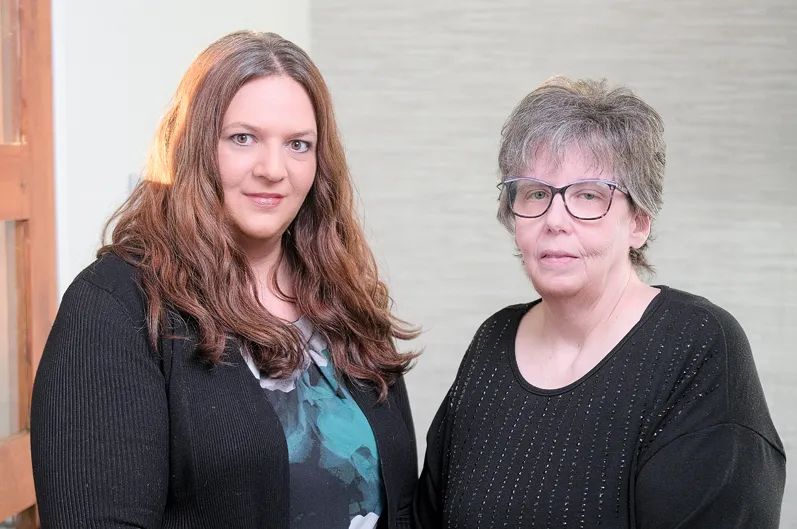
Jane Doe No More
Sexual Assault Victims unite to give others support and a voice
Julia Lillethun and Kristi Bice both went on journeys not of their own choosing, one a victim of a brutal rape and the other, of sexual abuse at the hands of her stepfather.
There were times in the aftermath, Julia remembers, when just putting one foot in front of the other was difficult.
“I think I was so lost in the darkness of it all that I kept forgetting to look for the light,” she says.
“There’s so much guilt and shame put upon survivors of sexual abuse,” Kristi says, “That’s why so many of them don’t come forward. That’s part of why I didn’t for so many years.Though Kristi’s abuse began in the late 1980s, and Julia’s attack took place toward the end of the next decade, it’s only been in the last few years that the two Billings women have been willing to share their stories and their identities, in the hope of helping others who have gone through the same thing.
“I decided I need to publicly let people know what happened to me when I was a child so that others would know they’re not alone, that it’s OK to talk about it, that there’s nothing wrong with them and it’s not their fault,” Kristi says.
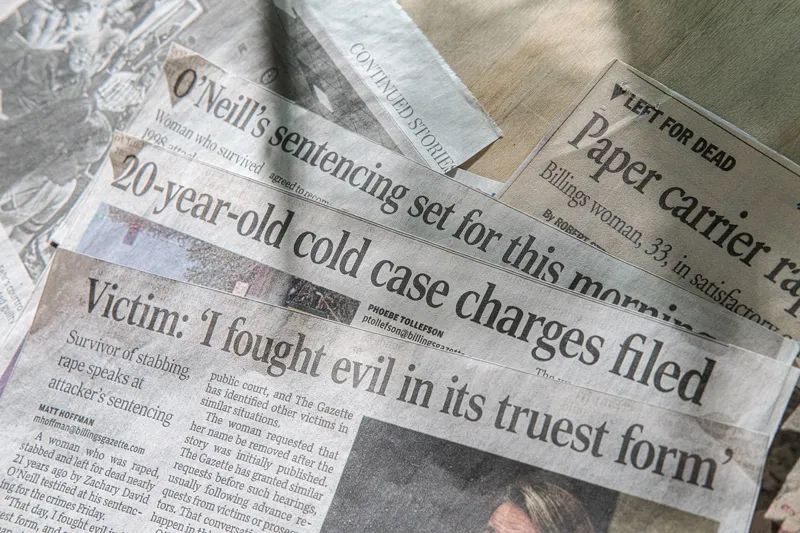
Today both women have joined in the effort to introduce Montanans to Jane Doe No More, a national organization geared toward empowering survivors of sexual crimes to speak up, advance their healing and educate others.
“Some days it’s ugly and hard as heck, but if you put in that time and invest in yourself, it’s worth it,” Julia adds. “It’s a long journey, but you can make it through to the other side.”
THE MYSTERY UNRAVELS
Julia, 58, is a mother of two and grandmother of five. She worked for over a decade as the assistant county superintendent for Yellowstone County. For more than two decades, she headed up the county spelling bee.
What most people don’t know is that on Sept. 5, 1998, Julia, then 33, was savagely attacked while out delivering newspapers.
On that early morning, Julia walked toward the corner of Broadwater and 24th Street West, expecting to catch a ride from her boyfriend. She heard footsteps, but thought it was one of the joggers she’d seen earlier. Instead, Zachary David O’Neill came up from behind and hit her, knocking the wind out of her.
“Then he put me in a choke hold and told me he had a knife,” she says. “I fought him all the way back and drug my feet as he dragged me between two buildings.”
The fight winded O’Neill, and Julia used that moment to tell the man she was a single mom, that she had cancer and was undergoing radiation treatments. She warned him she was radioactive. That didn’t faze him, she remembers. To distract him, she asked if he had a condom. When O’Neill laid down his knife to fish one out of his pocket, she tried to grab the knife, to toss it over a nearby fence. That enraged the man, who then proceeded to rape her.
Afterward, O’Neill grabbed his knife and started stabbing both sides of her neck, her face and her hands as she fended him off. He missed her carotid arteries, jugular veins and her esophagus just barely, but caused permanent damage to the nerves in her right arm.
Covered in blood, Julia slumped to the ground and pretended to be dead until O’Neill fled the scene. Discovered by passersby, Julia was rushed to the hospital and underwent surgery to stitch up her wounds. It was the emotional wounds, however, that would haunt her long after her body healed.
“The trauma is forever a part of you,” she says. “It’s not a light switch. You don’t turn it on and off.”
For nearly two decades, Julia didn’t know the name of her attacker. O’Neill confessed to police in 2017 and the mystery unraveled. O’Neill was the same man who, two months after Julia’s attack, murdered 18-year-old Miranda Fenner while she was working at a Laurel video store.
O’Neill is now serving a life sentence.
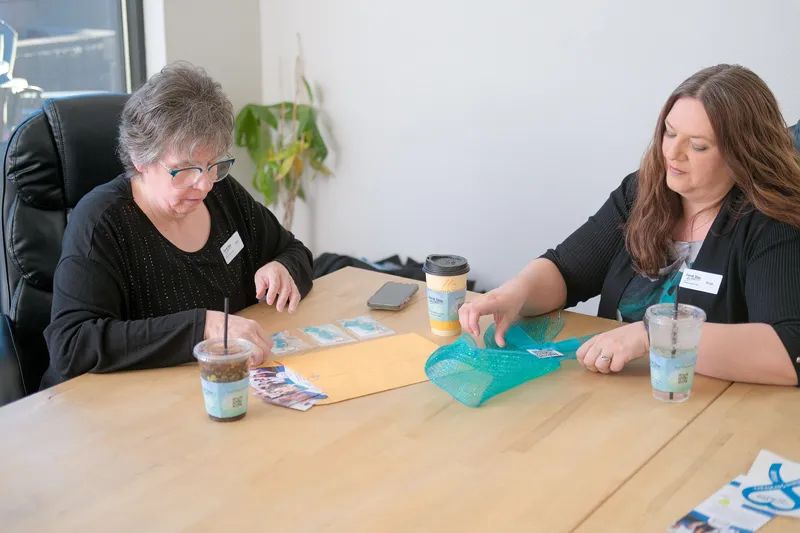
As time went by, she attempted to get back into the flow of her life, caring for her kids and focusing on her job. She was grateful for support she got from family and friends, but after a couple of months, some people urged her to forget what had happened and move on.
“The people around you can only hear it so many times – they’re secondary victims, the trauma is as real for them,” Julia says. “But I just felt alone, like there was nobody that got it, that understood.”
HEALING CHILDHOOD TRAUMA
Kristi, 43, says her sexual abuse began in 1989. Her parents divorced when she was 9, and her mother, 38, began dating a 24-year-old man. At first, Kristi liked him, then things changed, when he started doing things and telling her how pretty she was.
At 10, she told a school counselor that her then stepfather was making her feel uncomfortable. After a social worker called her mother and stepdad, her stepfather convinced everyone it was all a big misunderstanding.
That’s when, Kristi says, words escalated into the sexual abuse that continued until she was 13, mostly when her mother was at work. She saw little point telling anyone. They didn’t believe her before.
“And, also, I was afraid,” Kristi says. “He would flip knives in the air and clean guns in front of me in a menacing way. It wasn’t just ‘I’m going to clean my gun right now.’ It was obvious that it was directed at me.”
In eighth grade, Kristi confided in a friend, and her friend alerted a school counselor. This time, the counselor believed her. Her mother and stepfather fled with their 8-month-old daughter to another state. Kristi lived with a foster family until she could be reunited with her father in Billings.
She decided to file charges, even though she heard from the county attorney’s office that it wouldn’t be easy, and it would be her stepfather’s word against hers.
“I said ‘I don’t care,’” she says. “Even if he gets acquitted, at least I’ll know I tried.”
Two days before his trial got underway in Bozeman, her stepfather admitted his guilt.
“We switched from having to go to trial to a sentencing hearing,” says Kristi, who by then was living with her father. “But my mom was still defending him after he confessed to everything.”
He was sentenced to a maximum of 25 years, with parole possible after 15 years. Kristi tried to move on, but found it difficult.
“Most of the time, I did a lot of not dealing with it,” she says. “I didn’t talk to many people about it because I didn’t want the looks and people talking about me, saying, ‘You poor thing.’ I don’t want your pity; I want you to understand. So, I just stopped talking about it for a long time."
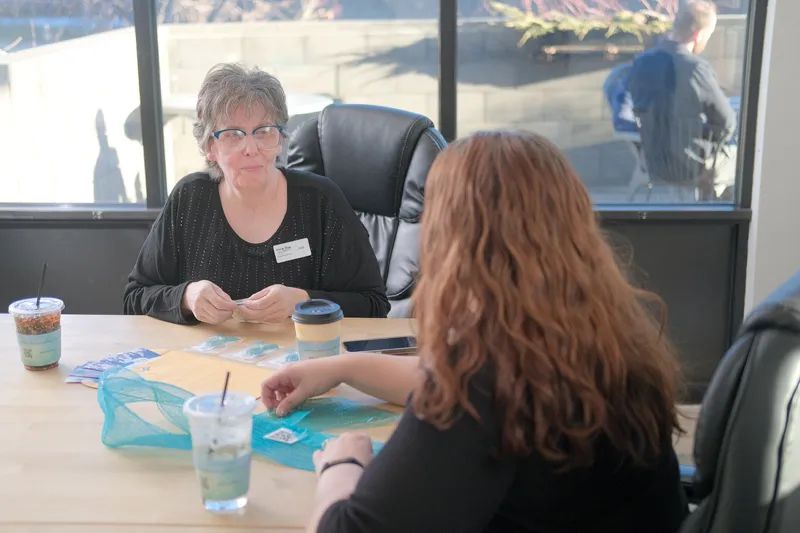
When Kristi was 23, she decided she was ready to face her abuser, and arranged to visit him at Montana State Prison. Her initial reaction when he entered the visitors’ center was that he was “a sad, pathetic human being just shuffling into the room.”
“All I could think was, ‘Why have I been so afraid of this guy for so long?’” she says.
She told him that although he tried to beat her down to keep her from standing up to him, it didn’t work. He was in prison and she was doing what she needed to survive.
“It felt like a boulder had been lifted off my chest,” she says, “knowing that I got to walk out of that prison and he had to stay because that is where he belonged.”
In 2018, Kristi read news accounts about a lawsuit filed against a former high school athletic trainer in Miles City. His sexual abuse of young athletes, which had occurred years before, had only just come to light.
“I thought to myself, if even one person had made it OK for one of these boys to say something, how much of this could have been prevented?” she says. “Somebody needs to do something about this. And that’s when it occurred to me, oh my God, I am somebody.”
Kristi decided to share her story so others would know it’s OK to talk about it. She made a public eight-minute Facebook Live video so anyone could watch. She was nervous about the feedback but when comments rolled in, they were all supportive.
When Kristi saw a Billings Gazette Facebook post about the Miles City case, she added a comment about her own experiences. Miles City Attorney Daniel Rice, who filed a lawsuit against the trainer on behalf of the students, replied.
Rice thanked Kristi for her bravery in sharing her story and then told her he was part of an effort to get Montana state law changed to remove the statute of limitations for criminal child sexual abuse cases. He asked if she’d be willing to testify in favor of the bill if it made it to a legislative hearing. Much to her surprise, she said yes.
“I’ve gone from my first public speaking about this to, OK, let’s talk in front of the Legislature,” Kristi laughs. “Go big or go home, I guess.”
Kristi testified at hearings in both the House and the Senate, and once the bill passed, she was invited to attend the ceremony where then-Gov. Steve Bullock signed it into law. She was given the pen he used, which now sits on her desk at work.
"Never in my life did I imagine starting that Facebook video would lead me to that,” she says.
This past legislative session, Kristi joined forces again with Rice and state Sen. Shane Morigeau on getting a similar bill passed pertaining to the statute of limitations for civil suits linked to sexual abuse. That work led her to be involved with the Montana Department of Corrections’ Victim Impact Panel, where she met Julia, and now Jane Doe No More.
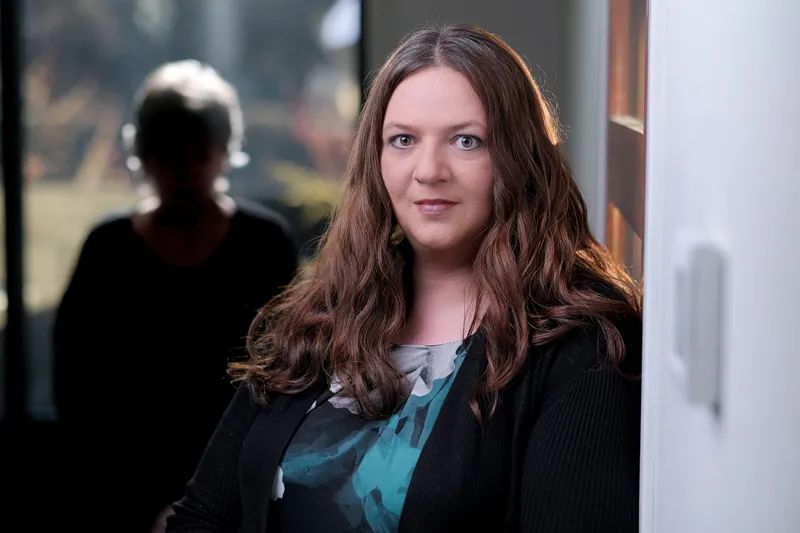
FINDING THEIR VOICES
For the past 19 months, Julia has shared her journey face to face with convicted adult offenders through the Victim Impact Panel. The panel lets victims tell their stories to inmates, to help them understand how their crimes devastate victims and their families. It’s given her the chance to finally speak up.
In November 2022, she was part of a panel at the Montana State Prison, where O’Neill is housed (the Department of Corrections makes sure no victim ever encounters their offender). Julia grew emotional as she talked about what happened. In a debrief afterward, she learned that there wasn’t a dry eye among the inmates who listened to her story.
“It was liberating for me to know that my story had such an impact,” Julia says.
Likewise, giving the talks has had an impact on Julia. Victim Program Manager Jamie Rogers told Julia that over time, she has watched her transform.
“She had seen someone who was so broken and just slouched over and had given up,” Julia says. “And she said, ‘I’ve seen you pick yourself up and stand straight and I’ve seen your determination and your strength and your powerful story, and the lives that are changing.’ And that meant the world to me.”
That’s exactly what these two women hope happens with the start of Jane Doe No More in Montana. Both were introduced to the organization by Barb Jenkins, a Montana author and survivor of sexual abuse, who brought the Connecticut-based nonprofit to Montana. Kristi and Julia went through training in January and plan to join Barb in spreading the word.
Barb has given talks through the “Safe Student Initiative,” which provides education for students from middle school through college on sexual respect, healthy relationships, consent, digital danger and rape culture.
“Duty Trumps Doubt,” a training program for law enforcement, first-responders, healthcare and legal professionals, is close to Julia’s heart. Its purpose is to help individuals better understand victims of sexual crimes and prevent revictimization.
Julia recalls overhearing two police officers talking, after they had interviewed her about the rape. One asked the other what he thought.
“He said, ‘Well, her affect is flat and she’s not acting like someone who’s been through something so traumatic,’” Julia says, her voice rising in anger. “And I thought, what the — is there a handbook on how we’re supposed to act? I was in shock. That’s just more trauma upon trauma.”
She hopes “Duty Trumps Doubt” will inject more empathy into the conversation.
Another goal is to introduce “Survivors Speak,” which, with training, empowers survivors to share their stories while educating audiences. The hope, says Julia, is to help others do what she and Kristi have begun, to find their voices.
“I just feel this is so important, that people know they can come out of the darkness and not have to fight this alone.”
HOW TO LEARN MORE OR GET INVOLVED: If you’d like to learn more and connect with Jane Doe No More Montana, you can visit janedoenomore.org, or email Barb Jenkins at barb@janedoenomore or call her at 406-240-9648.











